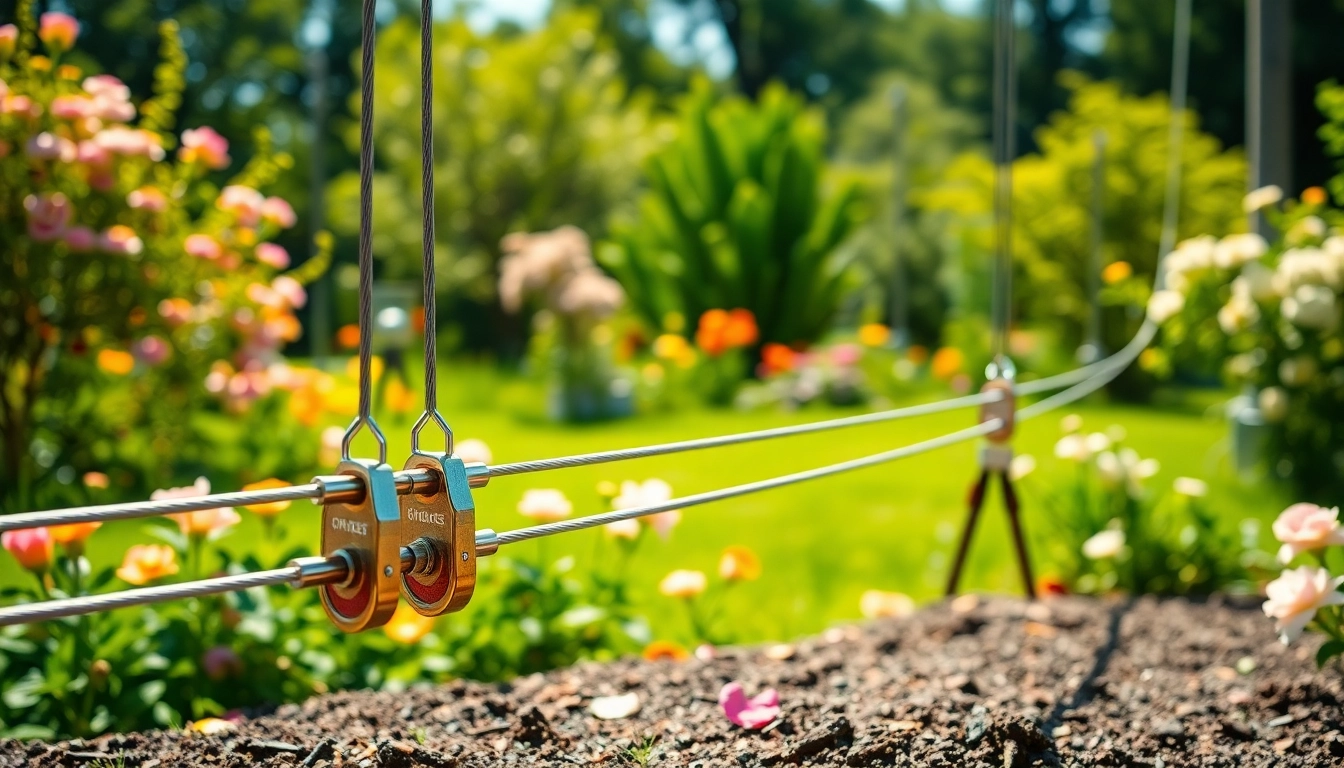
Introduction to Dune 2 Game Mechanics
Released in 1992, dune 2 game is often hailed as one of the earliest real-time strategy (RTS) games that laid the groundwork for future titles in the genre. Set in the expansive and richly imagined universe of Frank Herbert’s Dune, players are tasked with commanding one of three unique factions as they vie for control of the desert planet Arrakis. This game is not just about combat; it encompasses resource management, strategic planning, and clever tactical maneuvers. Through a variety of mechanics, Dune 2 has captivated generations of gamers, influencing many successors in the strategy domain.
Overview of Gameplay and Objectives
At its core, the gameplay of Dune 2 revolves around managing resources, building bases, and assembling units to defeat opponents. Players choose to align themselves with one of three Houses—Atreides, Harkonnen, or Ordos—each presenting its unique strengths and weaknesses. One of the primary objectives is to harvest the precious spice melange, the most valuable resource in the universe, and use it to advance your military capabilities.
The gameplay unfolds in missions that gradually increase in difficulty, requiring players to adapt their strategies as they discover more about the game mechanics and their opponents. The game incorporates elements of exploration, as players must scout the map for resources while encountering enemy forces that are equally determined to seize control of Arrakis.
Key Features that Define Dune 2 Game
Dune 2 introduced several groundbreaking features that would become staples in the RTS genre. The isometric view allows players to navigate the vast terrain of Arrakis, giving them a better strategic perspective. An intuitive interface enables easy management of units and buildings, facilitating smoother gameplay. Furthermore, the game features a dynamic AI that tasks players with responding to ever-evolving battlefield situations.
The introduction of base building was another significant advancement. Players are not only expected to produce combat units but also to develop structures that enhance their operational capabilities. The production of units happens in real-time, meaning that players must balance their time between resource gathering and military expansion.
Differences from Other Strategy Games
While many strategy games focus solely on combat or resource management, Dune 2 encompasses the best of both worlds. This multifaceted approach requires players to develop both their militaristic and economic strategies simultaneously. Diverging from the turn-based strategy games that were prevalent at the time, Dune 2’s real-time mechanics demanded quick decision-making and adaptability, setting it apart from its contemporaries.
Additionally, the player’s choice of faction significantly alters gameplay dynamics, making each playthrough unique. Unlike other games where factions may feel similar, the Houses in Dune 2 introduce distinct play styles, allowing players to experiment with different strategies and tactics based on their chosen faction.
Faction Breakdown in Dune 2 Game
Understanding the strengths and strategies of each faction is critical for success in Dune 2. Each of the three Houses—Atreides, Harkonnen, and Ordos—offers a unique gameplay experience, encouraging players to find a faction that aligns with their strategic preferences.
House Atreides: Strengths and Strategy
House Atreides is known for its balanced approach to gameplay. They excel in defensive tactics and unit versatility, making them suitable for both new and experienced players. The key strengths of the Atreides lie in their advanced technological weapons and their ability to deploy effective spy units to gather intelligence on enemy movements.
To succeed with Atreides, players should focus on establishing strong defenses while steadily expanding their economy. Utilizing their superior infantry and technologically advanced units in coordinated strikes can help leverage their defensive capabilities into successful offensive maneuvers. The capability to field the highly powerful Sonic Tank can swing a battle in their favor when executed correctly.
House Harkonnen: Unleashing Raw Power
In stark contrast, House Harkonnen embraces brute strength and firepower, appealing to players who prefer aggressive tactics. Their units are characterized by high damage output, making them formidable opponents on the battlefield. The strength of the Harkonnen forces lies in their ability to overwhelm enemies through sheer numbers and powerful weaponry.
Harkonnen players should focus heavily on resource acquisition to maintain a large army. Rapid expansion and constructing overwhelming forces is crucial. Being aggressive early in the game can pressure opponents, often forcing them into a reactive stance. A well-timed attack can cripple an enemy’s economy before they can fully build their defenses.
House Ordos: Stealth and Surprise Tactics
House Ordos stands out for its emphasis on stealth and cunning. Employing subterfuge, Ordos units specialize in deception and surprise attacks. The implementation of “saboteur” units allows players to disrupt enemy operations, making it essential to adopt a guerrilla warfare approach to gameplay. This faction thrives on outmaneuvering opponents rather than engaging in direct confrontation.
Playing as Ordos encourages the creation of diverse unit compositions that can perform well under various conditions. The key to victory is to exploit weaknesses in enemy defenses while maintaining a low profile. Players should invest in scouting and intelligence gathering to fully leverage their tactical advantages.
Crafting Your Strategy for Success
Mastering Dune 2 involves not merely understanding faction strengths but also developing a comprehensive strategy that encompasses resource management, base building, and unit composition. Each of these elements plays a critical role in determining a player’s success on the battlefield.
Resource Management in Dune 2 Game
Effective resource management is the cornerstone of any successful strategy in Dune 2. Players must harvest spice efficiently while balancing their expenditures on units and buildings. Understanding the timing of resource collection can lead to significant advantages, particularly in the early game when pressure is mounting from opponents.
Strategically positioning harvesters and ensuring their safety from enemy attacks should be a priority. Players should also consider building defenses near spice fields to protect their most vital assets. Planning for resource allocation during critical phases of gameplay will empower large unit production and innovation.
Base Building Strategies
Constructing an effective base involves more than simply placing buildings on the map. Each faction requires a different approach due to their unique strengths and available units. Players should start by focusing on the economy, creating structures that produce harvesters and ensure a steady flow of spice.
Once a stable income has been established, players should prioritize defensive structures, particularly turrets and barracks, to fortify their base against enemy incursions. Having a well-structured base that allows for quick access to unit production will significantly enhance tactical responses during conflicts. It’s also vital to create pathways for escaping and counterattacking during battles.
Unit Composition for Optimal Fights
Selecting the right combination of units before heading into combat is critical in Dune 2. Every faction has unique units that work particularly well together. A balanced approach to unit composition ensures players can respond to a variety of threats that may arise on the battlefield.
For example, Harkonnen players should blend heavy tanks with infantry to maintain a strong front line while Ordos might prioritize speed and sneak attacks by utilizing their stealth units. Understanding the strengths of your units allows for creating combined arms tactics that can adapt based on situational demands.
Advanced Tactics and Tips
As players gain experience in Dune 2, they will encounter more complex strategies that will improve their effectiveness in both single-player and multiplayer environments. Familiarizing oneself with advanced tactics can mean the difference between victory and defeat.
Effective Offensive Strategies
Offensive strategies in Dune 2 require careful timing and precise execution. Coordinated strikes that leverage the strengths of each faction can quickly overwhelm opponents. Effective offensive strategies often start with diversifying the attack by creating multiple fronts, thereby stretching an opponent’s defenses thin.
Surprise is a vital component during engagements—using ambiguity and feints can lure an enemy into ambushes. Players should also consider maintaining reconnaissance to adapt their tactics based on the adversary’s response. Understanding when to strike and when to consolidate is key.
Defensive Techniques to Dominate Your Opponents
A strong defense in Dune 2 can lead to success through attrition. Players should utilize terrain features to their advantage, strategically positioning units and defenses in areas that disadvantage attackers. Constructing walls and utilizing towers can provide extra layers of protection against invasions.
Moreover, deploying scouting units can help preempt an enemy’s assault by revealing attack routes and allowing players to prepare adequately. A strong defensive posture can dictate the pace of the match, causing opponents to become frustrated and make mistakes.
Utilizing Terrain to Gain the Upper Hand
The landscape of Arrakis contains various features that can be leveraged for tactical advantage. High ground often provides range benefits, while sand dunes and canyons can be used strategically for ambushes. Understanding the terrain will allow players to capitalize on such advantages when preserving resources or planning a counterattack.
Moreover, terrain knowledge allows for better resource management—knowing where spice is located helps in determining base placement. Players should also remember that control over certain areas not only enhances one’s own production capabilities but also limits an opponent’s options.
Community and Competitive Scene in Dune 2 Game
The Dune 2 community remains vibrant, with both casual players and competitive enthusiasts passionately engaging with the game. This section explores how players can connect with others and improve their skills through community engagement and competitive events.
Engaging with the Dune 2 Game Community
Engagement within the Dune 2 community enhances the gaming experience significantly. Players can join forums, social media pages, and Discord servers dedicated to the game. By participating in discussions, sharing strategies, and exchanging tips, players can improve their understanding and performance.
Interactions with seasoned veterans can provide invaluable insights, helping new players to learn from mistakes and discover strategies that they may not have considered. Moreover, watching replays and streamers play can serve as both entertainment and educational content, supplementing one’s own tactics effectively.
Popular Tournaments and Events
Tournaments provide an exciting platform for players to showcase their skills and engage in friendly competition. Various online platforms host regular tournaments where players can compete against others from around the world. Engaging in these events not only enhances skills but also introduces competitive players to the broader gaming community.
Participating in tournaments and competitions can lead to improved gameplay due to the high level of competition, forcing players to refine their strategies and adapt quickly to multiple scenarios. Winning tournaments can also boost a player’s reputation, raising their profile within the community.
Tips for Improving Through Competitions
Improving through competition requires a focused approach. Players should analyze their gameplay critically, identifying areas for improvement. Recording matches and reviewing them can help to spot mistakes and missed opportunities. Additionally, players should remain open to feedback and suggestions from others.
Participating in practice matches before entering competitive events can help in adapting strategies under pressure, preparing players for the fast-paced nature of competitive play. Most importantly, focusing on enjoying the process regardless of outcomes fosters better long-term development in a player’s skill set.








